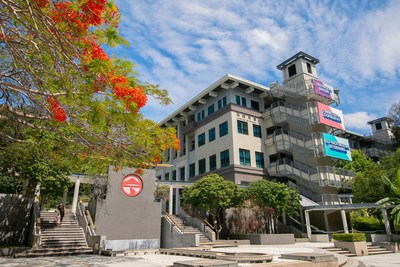Lingnan University study finds older adults show greater resilience during COVID-19 pandemic
PR Newswire
HONG KONG, June 8, 2022
HONG KONG, June 8, 2022 /PRNewswire/ -- People have been forced to adapt to the new normal in the wake of the COVID-19 outbreak. Evidence suggests that people's subjective well-being has deteriorated especially in societies where the negative impact of the pandemic is relatively large. However, a recent study conducted by Lingnan University (LU) in Hong Kong reveals that Japanese older adults' life satisfaction, as compared with their younger counterparts, had substantially improved during the pandemic, indicating their resilience on average.
This research analysed the data from a nationwide panel survey "Changes in Attitudes and Behaviors during the COVID-19 Pandemic" conducted by the Cabinet Office of the Government of Japan between May 2020 and October 2021 for 3,725 respondents aged 25 and over. Participants had been asked how satisfied with their life by using the Cantril Ladder, with 0 being the worst (i.e., not satisfied at all) and 10 being the best (i.e., extremely satisfied). The shift in life satisfaction was compared across three age groups: 25 to 44; 45 to 64; and 65 and above. Figure 1 summarises the mean scores of life satisfaction across three age groups at the two waves of studies.
The results showed that the average life satisfaction had not declined but improved regardless of age during the period. In particular, older adults aged 65 and above showed a substantial gain in life satisfaction throughout the period (mean score raised from 4.56 to 5.57).
The results also revealed that older adults' life satisfaction was significantly associated with their socio-economic attributes such as gender, income, health and family/social relationships. It is particularly noteworthy that, while better health and social ties largely demonstrated positive signs for preferable life satisfaction shifts during the two waves of studies (e.g., from low to high and from mid to high) and negative ones for unfavourable combinations (e.g., from low to low and from mid to low), the top income group showed a high probability of obtaining high life satisfaction in both waves (i.e., from high to high). This suggested the possession of financial resources played an essential role in dividing older adults into those who could and who could not retain positive feelings during the pandemic. Meanwhile, it was also found that women were more likely to report the "low to low" combination, implying that older women had been penalised in terms of life satisfaction under COVID-19 despite the observed resilience on average in the same age group.
Prof Satoshi Araki, Assistant Professor of the Department of Sociology and Social Policy of Lingnan University in Hong Kong, says that this study should be applicable to other Asian societies including Hong Kong. "Considering that older adults' resilience during the COVID-19 pandemic has been reported worldwide even in the super-aged society Japan, it is logical to assume a similar structure exists in Hong Kong. Meanwhile, there is also a possibility that Hong Kong suffers a relatively larger extent of 'resilience divide' among older adults given the existing socio-economic inequality," he said.
To address this pressing social issue and realise human flourishing in an ageing society like Hong Kong, Prof Araki added that multiple stakeholders such as policymakers, practitioners, and researchers must work together to reveal the distribution of socio-economic resources and resilience, thus fostering social policy and practice to support older adults, especially with disadvantaged backgrounds. It is also essential for the government or research bodies to collect high-quality panel data that permit both cross-sectional and longitudinal analyses.
This study was published in the Journal of Applied Gerontology (https://doi.org/10.1177/07334648221089284).
![]() View original content to download multimedia:https://www.prnewswire.com/news-releases/lingnan-university-study-finds-older-adults-show-greater-resilience-during-covid-19-pandemic-301563908.html
View original content to download multimedia:https://www.prnewswire.com/news-releases/lingnan-university-study-finds-older-adults-show-greater-resilience-during-covid-19-pandemic-301563908.html
SOURCE Lingnan University (LU)



